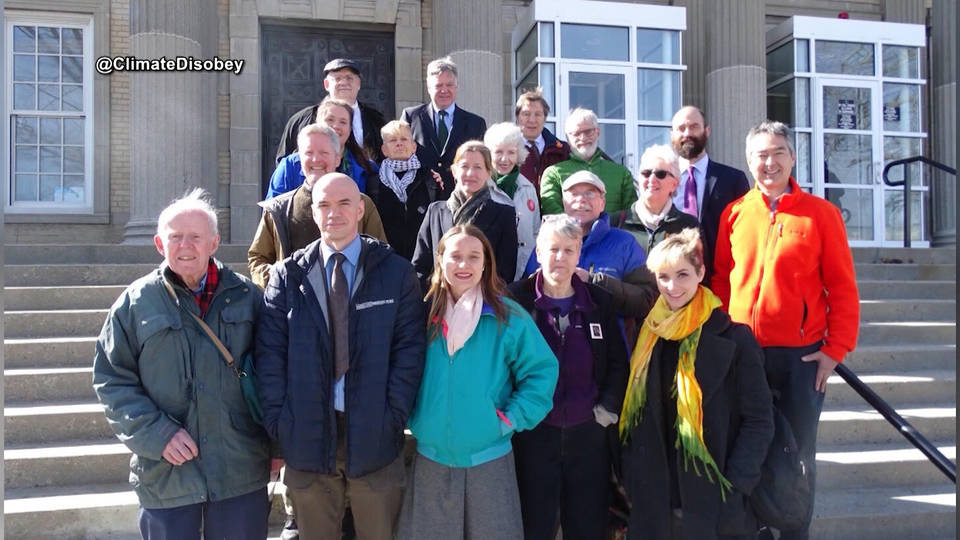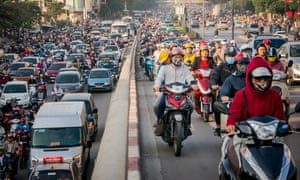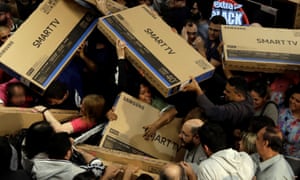The Anger of the White Male Lie
I'm reading an email from a white man. It is about 15 paragraphs of poorly written vitriol, telling me in far too many words about how wrong I am. About everything. I'm wrong about feminism. It's unnecessary. And by the way, the wage gap doesn't exist. I'm even more wrong about racism. There is no more racism. It's been over a very long time and maybe if people like me would just get over the past we'd be motivated to get off of our asses and get real jobs. As proof of how wrong I am, he's included links to youtube videos made by other white men saying pretty much the exact same thing as him. He has also inserted a few graphs. He consistently calls me "Ms. Oluo" and reiterates a few times that he "means no disrespect" but it is clear from his insistence that I read all of his horrible paragraphs and that I "learn a little more" about "my people" that he means every bit of disrespect his poorly phrased sentences are capable of conveying and more.
He suggests that I try being "less angry" as if it is not anger that propelled him through a google search of my name, to my website, to my contact page, then to his email, and then through the writing of a billion paragraphs complete with charts and footnotes. He says "less angry" as if I am not currently adding his email into a file with countless other long-winded missives, dismissals and violent threats from white men who decided to take the time out of their day to let me know in sometimes very disturbing ways that they need me to be "less angry."
In closing he puts his full name and title. He's a woodcarver and personal trainer. And, apparently, expert on race and gender studies.
Somebody needs to stop telling these white boys that they can be anything they put their mind to.
I say that in jest. A lot. But I'm only half joking. Actually, I'm not joking at all. Somebody really does need to stop telling these white boys that they can be anything, and that they can have everything. Because it is not true, and it was never true, and we're the ones who have to pay when they find that out.
Angry black woman.
I'm the angry black woman. I'm the shouting, take no shit, finger-wagging, side-eye giving black woman. I am angry about a lot of things. I'm angry about police brutality and systemic poverty and the school to prison pipeline. I'm angry because the community I love is threatened daily and has been for hundreds of years.
There is righteous anger born of love. Born of the desire to protect those that you love and the life that you love. Anger born of the need to hold tight what little joy and beauty you've been able to find in a hostile world.
I was never told by this society that I could be anything and I could have everything. I was always told to settle for less. And my anger and the anger of so many other marginalized people has always lied in that reality. The truth of the situation.
But white male anger is steeped in a lie. It is fighting for what they were never going to have. For the promises that were never going to be fulfilled. White men are the only people allowed to fully believe in the American dream and perhaps that is the cruelest thing to have ever been done to them and the world that has to suffer their anger as they refuse to let go of a fantasy that we were never allowed to imagine ourselves in.
White men who shoot up schools and workplaces are not murderous monsters, or mindless thugs. They are "lovesick" or "misunderstood" or "tragic." Hundreds of thousands of words are dedicated to finding the reasons why someone with so much promise could have fallen so far.
But how much promise was there really?
How much promise is there in a life where you are told that all you have to do is exist in order to inherit a kingdom. How much promise is there in a life where your mediocrity is constantly applauded and every hero looks like you and every love interest is a supermodel, but at the end of the day you will be working in a cubicle with everyone else and your only consolation is that you will be making $1.50 an hour more than the women and people of color in your office?
How much promise is there in being told that your culture is the only one worth knowing, and that your language is the only one worth speaking? How much promise is there in never having to say you are sorry, never having to say you are wrong, never having to say you don't know?
Many Americans love to laugh at the ridiculousness of monarchy. At these backwards countries who believe that simply by being born, these blueboods deserve to rule entire populations. But what is white male supremacy in America if not an overabundance of kingdom-less monarchs who can't even speak French?
A few weeks ago I was sitting at a stoplight and realized that I wasn't quite as sure how to get home as I'd initially thought. As I punched the "home" button on my Waze app on my phone I heard shouting to the right of my car. I looked over and there was a white man in an SUV waving his arms at me and yelling. He was furious that I'd dared to look at my phone in my car. He was oblivious to the fact that I was trying to actually be a safer driver by knowing where I was actually going. He just knew that he had pulled up next to me and I had my phone in my hand and he had to do something. He leaned out of the window of his SUV and spittle flew out of his mouth as he angrily shouted.
I looked straight ahead as he screamed, becoming angrier and angrier. I was afraid that he might be armed, he seemed out of control. The light turned green and I pulled forward, but the man next to me was too busy yelling to notice right away. Then, angry that I had pulled forward before him, he sped ahead with such force that I could hear his tires squeeling. He peeled in front of me and then had to swerve out of the way at the last minute to avoid hitting a car that was stalled around the corner. I shook my head in wonder at the absurdity of it all.
I wrote about the weird event on facebook, figuring if anything, it would be entertaining to my friends. Within a few seconds a commenter, a white woman, said, "Let me guess, this was a white man?" She had her own story about being yelled at for driving in a way that a white man disapproved of. Soon, many others were sharing their stories. Women who had been threatened. One woman who had been yelled at by the same man twice on two different occasions, a man who apparently yelled at women so often that he was unable to recognize her the second time. One woman talked about a rock being thrown at her car because a white man didn't like how she drove. One white man tried to drive a friend of mine off the road. Another rammed a woman's car.
The road was for men. It was supposed to be theirs like so much else was. And if they couldn't boss women around at work, if they didn't have a wife at home to scream at, goddamnit they were going to take control of the roads.
"Nobody cares about white men," is a sentence I hear far too often. In facebook comments, tweets, article responses, emails, the op-eds of major national papers. Nobody cares about the white men left behind. Nobody cares about the white men who are collecting unemployment, or working middle management, or not getting regular blow jobs. Nobody cares about the white men whose hair is thinning and dad-bod is settling in and they never got to walk into a party with a hot girl on their arm and now it's too late. Nobody cares about the white men who have to learn new terms like "privilege" or "cultural appropriation" or "social justice" — terms that don't do anything to explain why they aren't rich or powerful or happy.
But of course, everyone cares about white men. Do you want a movie about what it feels like to be a middle-class white man who has never gotten to skinnydip naked in the middle of the night with a hot girl? Oh it's an entire genre. Do you want a really long think piece about how hearing the phrase "black lives matter" and having to go to community college instead of Harvard even though you only had a 2.3 gpa turned you into a neo-Nazi? If someone hasn't written it yet, they will. Do you want a great American novel about how being a white dude working a secure, middle-management job with full health and retirement benefits makes you want to open fire at the next company potluck? Pretty sure your local librarian can point you to a few dozen.
And in all these tales, these articles and movies and songs — white men are angry. Justifiably angry, because they were supposed to be so much more than this. But nobody explains why.
Why were they supposed to be so much more?
Why were they all supposed to have powerful or rewarding work? Why were they all supposed to have loving and beautiful wives? Why were they all supposed to be exempt from recessions or layoffs or just plain old bad luck?
Why were they supposed to have everything when everybody can see that there has never been enough everything to go around?
Being rejected by girls will be a valid reason as to why a white man drives his car into a group of women. Being laid off will be a valid reason as to why a white man opens fire in an office. Being "frustrated" will be a valid reason as to why a white man leaves bombs on the doorsteps of black families. Being unpopular will be a valid reason as to why a white man shoots up a school.
But living in systemic poverty with no job prospects won't be a valid reason for why a black man sells loose cigarettes on the street. Being frustrated by constant harassment by police officers won't be a valid reason for why a black woman refuses to put out her cigarette at a traffic stop. Living in a neighborhood with no jobs, no infrastructure, underfunded schools, and no dependable police presence won't ever be considered a valid reason for higher crime rates in black and brown neighborhoods.
Because we were never supposed to expect any of those things. We were never supposed to expect jobs or police protection or investment in our communities or quality education. We were never supposed to expect to see ourselves in movies or read about our heroism in novels.
Whatever there was to expect — we weren't supposed to expect any of it to come to us.
And white men expected more of it to come to them than ever existed.
And as I watch white men scramble to justify the brutality they visit upon the rest of the world in rage over a life that they think they lost, even though it never was and was never going to be theirs I sometimes wonder what is worse?
Having to fight to get what you've been told you have no right to ask for? Having to fight for your very humanity and your right to exist?
Or fighting to punish those who you think stole something from you that never actually existed and throwing your comforts and privileges to the ground in disgust because they insult the greatness you'll never achieve?
I don't know. I mean - I do know. Because the rage that ruins these white men's joy and consumes their mediocre beings and turns them violent will turn on me and countless other black people, brown people, disabled people, queer people, trans people, and women of every demographic. Because while I have to fight for my life and the lives of my community members I will also have to fight an angry white man who thinks that somehow I, or someone like me, got that bit of success or talent or visibility that was destined for him. That somehow, while dealing with micro-aggressions, macro-aggressions, a racist school system, education system and entertainment system — while trying to stay healthy with a racist healthcare system and stay employed in a racist employment system — I had time to steal the greatness that he was supposed to be and….I don't know… smoke it or eat it or something. Because a white man would rather murder strangers who look like me than admit he got conned. And other white men would rather call it justified than ridiculous and pathetic.
And it is ridiculous and pathetic.
Maybe instead of telling white men they can be anything and they can have everything, we should start asking why they ever thought that everything was there to be had and why they ever thought they deserved it in the first place.










